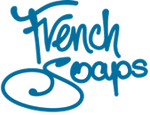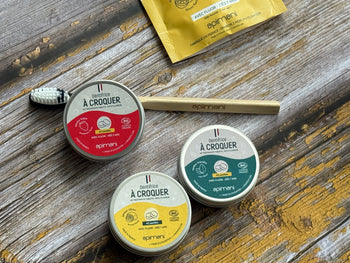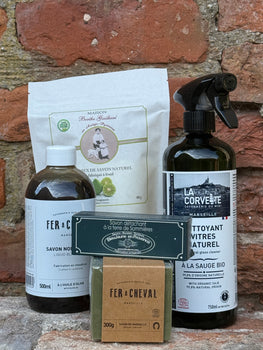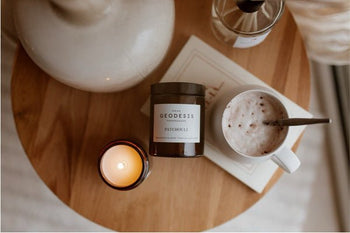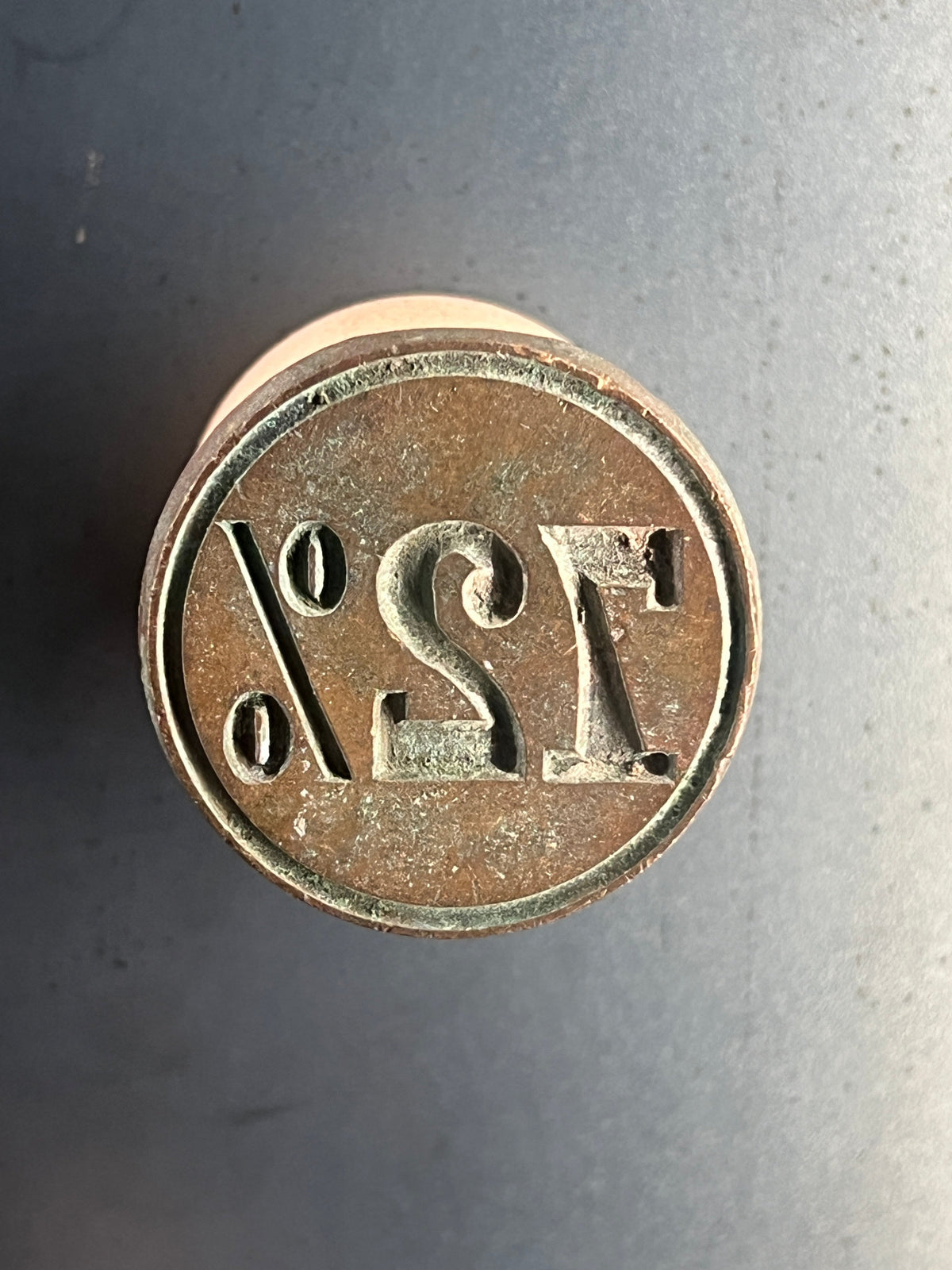
Gifting couldn't be easier
Add a gift message to be emailed to when their parcel arrives, or at a time of your choice.
If you've ever held a block of traditional, or some fragranced, Savon de Marseille soaps, you’ve likely noticed the number “72%” stamped prominently on its surface. For some, it's a quaint detail. For others, it’s a trusted symbol of quality. But what does it actually mean?
In a world of modern marketing jargon, “72%” is more than just a number — it's a guarantee of purity, tradition, and craftsmanship rooted in over 600 years of French soap making.
Whether you're looking for a gentle cleanser for sensitive skin, a zero-waste household soap, or simply something beautiful and natural for your home, understanding the meaning behind "72%" can help you shop smarter.
In this post, we’ll explain what 72% means, how it sets Savon de Marseille apart from modern soaps, how it's regulated and why it is a product that has a place in every home.
What is Savon de Marseille?
Savon de Marseille is a hard soap made using traditional methods dating back to the 14th century. It originated in the port city of Marseille, where access to olive oil, Mediterranean sea salt, and alkali-rich ash created the perfect conditions for large-scale soap production.
Unlike modern synthetic soaps, Traditional Savon de Marseille is made with:
It’s gentle, biodegradable, and trusted for everything from washing faces to scrubbing floors — and the “72%” is at the heart of its magic.
The term 'Savon de Marseille' is not protected and is also used for Provence Market Soaps, where the term means 'made in the Marseille region. These will also be stamped 72% and share the principle of the 72% minimum vegetable oils but they will contain colour and fragrance.
What does 72% mean?
The “72%” refers to the oil content in the finished soap. Specifically, it means that:
A minimum of 72% of the total ingredients are pure vegetable oils — usually olive oil, palm oil, coconut oil, or a blend. In the fragranced soaps you will often find Shea Butter too.
It’s not about fat remaining in the soap — rather, it means a minimum of 72% of the soap’s original weight was derived from vegetable oil, which was saponified (turned into soap) during the process.
This high oil content is what makes the soap:
Why 72% Oil Content Matters
The 72% figure ensures you're getting a highly pure soap, with no synthetic detergents, traditionally with no artificial fragrance (read more on that here) and no animal fat. It’s a mark of authenticity, used by master soap makers in Marseille for generations.
This high percentage of saponified oil delivers:
History of the 72% Standard
The “72%” standard can be traced back to Napoleon and Louis XIV’s soap edicts. In 1688, the Edict of Colbert (under Louis XIV) legally defined Savon de Marseille, stating it must:
Later, the 72% oil content was introduced as a stamp of authenticity and quality, helping to protect Marseille’s soapmakers from imitations and adulterated products.
To this day, 72% remains a legal and cultural benchmark for authentic Savon de Marseille — a kind of "appellation" of purity, much like Champagne or Roquefort.
Great for Sensitive Skin
Thanks to its minimalist formula, 72% Savon de Marseille is incredibly gentle. It’s often recommended by dermatologists for:
It is
♻️ Eco-Friendly & Plastic-Free
72% Savon de Marseille isn’t just good for your skin — it’s great for the planet too.
Brands like Fer à Cheval and La Corvette now offer plastic-free packaging and EcoCert-certified formulas, continuing Marseille’s commitment to low-impact, earth-friendly living.
How Does 72% Compare to Other Soaps?
|
Soap Type |
Oil/Fat Content |
Additives |
Synthetic Ingredients |
Skin Friendliness |
Environmental Impact |
|
Savon de Marseille (72%) |
72% vegetable oil | None |
No | Excellent | Excellent |
| Commercial Bar Soap | 10–30% (often tallow) |
Fragrance, dyes |
Yes | Moderate to Poor | Poor |
| Syndet Bars (eg Dove etc) | <10% (synthetic base) |
Many | Yes (surfactants) |
Variable | Moderate |
| Natural Artisan Soap | 60–80% |
Sometimes | No | Excellent (if well made) | Good |
Who Should Buy 72% Savon de Marseille?
You’ll love 72% soap if you:
You can use 72% Savon de Marseille for so much more than just washing your hands:
Why 72% Still Matters
The "72%" isn't just a number — it's a badge of honour, a promise of purity, and a standard of excellence that has stood the test of time.
In a world of over-engineered beauty products and eco greenwashing, Traditional Savon de Marseille remains refreshingly simple: oil, salt, water, and lye — and nothing else. Where as Fragranced Savon de Marseille adds colour and fragrance (which can be a mix of natural and synthetic ingredients) to this.
When you see that 72% stamp, you’re not just buying soap. You’re buying:
If you’re looking for a natural, plastic-free, family-safe alternative to modern detergents, the 72% bar is the gold standard. It's simple, trusted, and crafted with care — exactly what you want on your skin and in your home.
©️ French Soaps UK 2025
If you would like help shopping this article, or have further product or ingredient questions then please contact us and we will be happy to help. E. bonjour@frenchsoaps.co.uk T. 01423 803080
Telephone or Whats App: 01423 803080
Email: bonjour@frenchsoaps.co.uk
Social: @FrenchsoapsUK
Address: Unit 14 Ousegill Business Park, Carr Side Road, Great Ouseburn, North Yorkshire, YO26 9AE
Sign up for our newsletter and get all the latest news, offers and more delivered straight to your inbox. You can unsubscribe at any time. By 'submitting' you are agreeing to our T&C's and Privacy Policy.
Gifting couldn't be easier
Add a gift message to be emailed to when their parcel arrives, or at a time of your choice.
